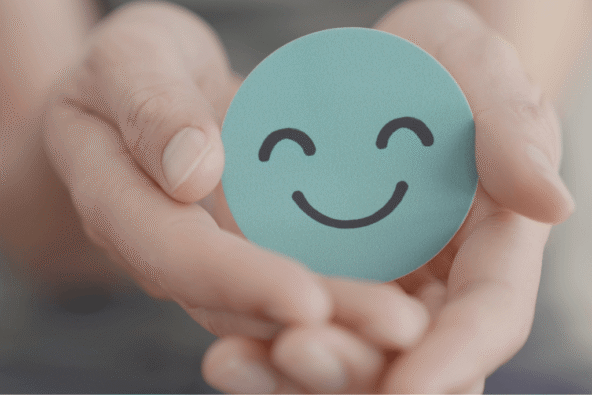Mental health challenges are common, and on the rise throughout the UK. According to Mind, 1 in 4 people will experience a mental health problem each year in England, and 1 in 5 people report experiencing a common mental health issue, such as anxiety or depression, in any given week.
For businesses, this means it’s highly likely that some of their employees are struggling – even if it’s not immediately obvious. And in small and medium-sized businesses, where teams are smaller and every person plays a critical role, the impact of one employee struggling can ripple across the whole business – affecting morale, productivity, and workplace culture. Yet in smaller teams it may be more obvious and easier to intervene.
Proactive support can create a healthier, more resilient team. Supporting staff isn’t just about compliance; it’s about creating a workplace where people feel safe, connected, able to tell someone they are struggling and able to thrive.


Managers and leadership teams play a critical role in employee mental health – even without formal training, managers can take meaningful steps to support their employees’ mental health.
Here are practical steps to help you support your staff effectively:
1. Recognise early signs of stress or distress
2. Be present and empathetic
3. Know your role
4. Offer hope and resources
5. Foster a culture of safety and connection


6. Bring in Mental Health First Aiders
7. Responding in a crisis
A Mental Health First Aider is someone trained to recognise signs of mental distress, offer immediate support, and guide employees to appropriate resources. They are not counsellors or therapists – their role is to listen, signpost, and create a culture of safety.
Having an MHFA in the workplace:
In short, MHFAs empower teams to support each other responsibly, creating a culture where wellbeing is taken seriously.


Supporting employee mental health doesn’t have to be complicated. Even small actions, such as having a Mental Health First Aider, checking in regularly, or creating a culture where it’s safe to speak up can significantly improve wellbeing and productivity.
Despite all of this advice, there may be situations where you may need to have some difficult conversations with employees around performance or conduct issues, it may even be that their condition is affecting their behaviour, conduct or performance in their role. This doesn’t mean you can’t have difficult and constructive conversations with team members, particularly those you think or know may be struggling with their mental health, but you may need to use that knowledge to ensure reasonable adjustments are made and that you think about the best way to have those conversations so as not to cause further issues/concern.
World Mental Health Day is a chance to reflect, act, and lead with empathy. For SMEs, these actions aren’t just about compliance or policy; they’re about creating workplaces where people can thrive, not just survive.
If you’d like support implementing Mental Health First Aiders or building a wellbeing framework in your business, get in touch – it could be the most important investment you make for your team this year.
If you want to create a workplace where employees feel safe, supported, and able to thrive, Metro HR can help.
Contact us today to discover how our expertise can guide you in implementing mental health strategies, training Mental Health First Aiders, and building a resilient, empathetic workplace.
